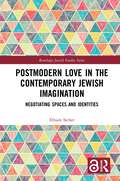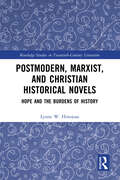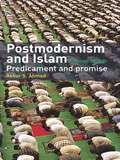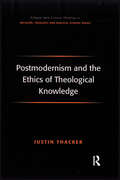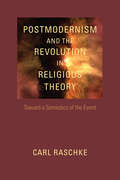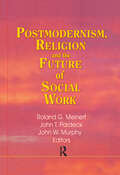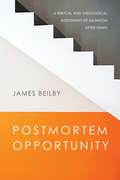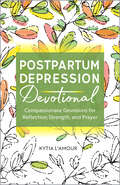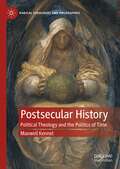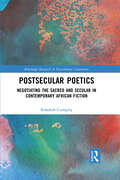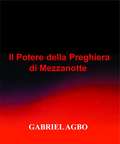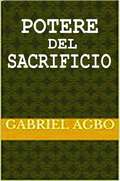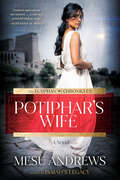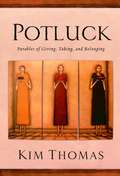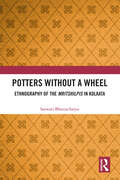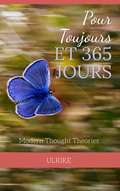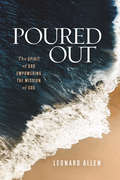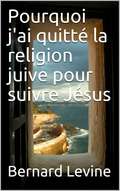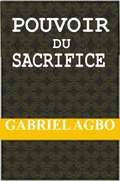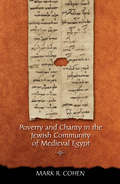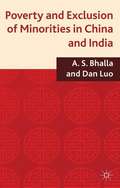- Table View
- List View
Postmodern Love in the Contemporary Jewish Imagination: Negotiating Spaces and Identities (Routledge Jewish Studies Series)
by Efraim SicherOffering a radical critique of contemporary Israeli and diaspora fiction by major writers of the generation after Amos Oz and Philip Roth, this book asks searching questions about identity formation in Jewish spaces in the twenty-first century and posits global, transnational identities instead of the bipolar Israel/diaspora model. The chapters put into conversation major authors such as Jonathan Safran Foer, Nicole Krauss, Michael Chabon, and Nathan Englander with their Israeli counterparts Zeruya Shalev, Eshkol Nevo, and Etgar Keret and shows that they share common themes and concerns. Read through a postmodern lens, their preoccupation with failed marriage and failed ideals brings to the fore the crises of home, nation, historical destiny, and collective memory in contemporary secular Jewish culture. At times provocative, at others iconoclastic, this innovative study must be read by anyone concerned with Jewish culture and identity today, whether scholars, students, or the general reader.
Postmodern Love in the Contemporary Jewish Imagination: Negotiating Spaces and Identities (Routledge Jewish Studies Series)
by Efraim SicherOffering a radical critique of contemporary Israeli and diaspora fiction by major writers of the generation after Amos Oz and Philip Roth, this book asks searching questions about identity formation in Jewish spaces in the twenty-first century and posits global, transnational identities instead of the bipolar Israel/diaspora model.The chapters put into conversation major authors such as Jonathan Safran Foer, Nicole Krauss, Michael Chabon, and Nathan Englander with their Israeli counterparts Zeruya Shalev, Eshkol Nevo, and Etgar Keret and shows that they share common themes and concerns. Read through a postmodern lens, their preoccupation with failed marriage and failed ideals brings to the fore the crises of home, nation, historical destiny, and collective memory in contemporary secular Jewish culture.At times provocative, at others iconoclastic, this innovative study must be read by anyone concerned with Jewish culture and identity today, whether scholars, students, or the general reader.The Open Access version of this book, available at http://www.taylorfrancis.com, has been made available under a Creative Commons Attribution-Non Commercial-No Derivatives (CC-BY-NC-ND) 4.0 license.
Postmodern, Marxist, and Christian Historical Novels: Hope and the Burdens of History (Routledge Studies in Twentieth-Century Literature)
by Lynne W. HinojosaPostmodern, Marxist, and Christian Historical Novels: Hope and the Burdens of History argues historical novels can help readers receive the burdens of history—meaning both the burdens of the past, present, and future and the burden of living in time—and develop a more robust conception of and concrete practice of hope. Since the 1960s, historical novels have been a dominant literary genre, but they have been influenced primarily not by Christian but by postmodern and marxist thinkers and writers. This book provides a theological and literary analysis of all three types of historical novels—postmodern, marxist, and Christian—and outlines what each school of thought can learn from each other regarding historical understanding and hope. Using Jürgen Moltmann’s theology of hope and Frank Kermode’s literary criticism as a theoretical basis, the book offers readings of novels by Julian Barnes, A.S. Byatt, Kazuo Ishiguro, Margaret Atwood, Michael Ondaatje, Ian McEwan, and Ursula LeGuin, among others, and ends with an extended analysis of Marilynne Robinson’s Gilead series.
Postmodernism and Islam: Predicament and Promise
by Akbar S. AhmedCan West and East ever understand each other? In this extraordinary book one of the world's leading Muslim scholars explores an area which has which has been almost entirely neglected by scholars in the field - the area of postmodernism and Islam. This landmark work is startling, constantly perceptive and certain to be debated for years to come.
Postmodernism and the Ethics of Theological Knowledge (Routledge New Critical Thinking in Religion, Theology and Biblical Studies)
by Justin ThackerThis book establishes the necessary integration of theological knowledge with theological ethics. It does this as a response to the postmodern critique of Christianity, as exemplified in Rorty and Lyotard. They argue that any claim to know God is necessarily tyrannical. Contemporary responses to such postmodern thinking often fail to address adequately the ethical critique that is made. This book redresses that balance by suggesting that our knowedge of God and love of the Other are so intimately connected that we cannot have one without the other. In the absence of love, then, we simply do not know God. Justin Thacker proposes that an effective theological response to postmodernity must address both knowledge and ethics in an integrated fashion as presented in this book.
Postmodernism and the Revolution in Religious Theory: Toward a Semiotics of the Event (Studies in Religion and Culture)
by Carl RaschkeWhile the academic study of religion has increased almost exponentially in the past fifty years, general theories of religion have been in significant decline. In his new book, Carl Raschke offers the first systematic exploration of how the postmodern philosophical theories of Jacques Derrida, Gilles Deleuze, Alain Badiou, and Slavoj i ek have contributed significantly to the development of a theory of religion as a whole. The bold paradigm he uses to articulate the framework for a revolution in religious theory comes from semiotics—namely, the problem of the sign and the "singularity" or "event horizon" from which a sign is generated.
Postmodernism, Religion, and the Future of Social Work
by John W Murphy Jean A Pardeck Roland MeinertPostmodernism, Religion, and the Future of Social Work discusses the benefits and disadvantages of the postmodern philosophy as a foundation for social work and human service practice. Social work students and practitioners will learn about the developments that have shaped postmodern thinking as they pertain to society in general, as well as to the profession of social work. By exploring this increasingly popular philosophy, Postmodernism, Religion, and the Future of Social Work provides you with methods and theories that help you evalute contemporary problems more effectively, resulting in better services for your clients.Challenging traditional social work practices, Postmodernism, Religion, and the Future of Social Work examines postmodernism in terms of a world view that is emerging along indeterminate and ambiguous lines. With the goal of helping you provide more helpful and relevant services to your clients, Postmodernism, Religion, and the Future of Social Work discusses many themes related to postmodernism, including: understanding how principles of postmodernism are characterized by ongoing change, indeterminacy, and relativism reviewing the historical movement of a postmodern perspective and its present implications on social work practice supporting the strengths perspective through a postmodernist approach discussing some unintended and potentially negative consequences of postmodernism that arise from uncritically adopting postmodernistic principles analyzing the nature of social work and social welfare in Britain and the Western World to gain insight into how social theory is associated with postmodernity, postmodernization, and post-Fordism exploring the postmodernistic relationship between institutionalized religions and social services provided by religious auspices Although postmodernism offers a new and different way of understanding social problems and of structuring social work practice, this text urges you to be critical in the evaluation of its aspects and outlines some possibly negative outcomes in certain situations. In evaluating postmodernism and its relevance to social services and social problems, Postmodernism, Religion, and the Future of Social Work offers theories and research into methods that go beyond traditional practices to assist you in providing effective and relevant services for your clients.
Postmortem Opportunity: A Biblical and Theological Assessment of Salvation After Death
by James BeilbyOne of Jesus' most basic commands to his disciples was to tell the world about the good news of his life, death, and resurrection. From the earliest days of the church, Christians have embraced this calling. But for those Christians who emphasize the need for an active response to the gospel in order to be saved, this raises some difficult questions: What about those who did not hear the gospel before death? Or what about those who heard an incorrect or incomplete version of the gospel? Or what about those who were too young or who were otherwise unable to respond? In light of these challenging questions, theologian James Beilby offers a careful consideration of the possibility for salvation after death. After examining the biblical evidence and assessing the theological implications, he argues that there is indeed hope for faith—even beyond death.
Postpartum Depression Devotional: Compassionate Devotions for Reflection, Strength, and Prayer
by Kytia L'amourFind peace amidst postpartum depression A new baby is an enormous blessing—but the transition to parenthood can be overwhelming, especially if you're struggling with postpartum depression. This compassionate devotional is a safe space to explore your fears and frustrations and to remind you that God's love is always there to lift you up. What sets this apart from other postpartum depression books: Strength in Scripture—Take comfort in a selection of Bible passages paired with personal stories that speak directly to new mothers' challenges, from healing the body to calming emotional turmoil. Prompts and prayers—Each devotion concludes with both questions and prayers, helping illuminate God's wisdom while providing you with a moment of reflection and tranquility. Flexible approachIdeal for new mothers, this inviting devotional is simple, straightforward, and can be used on whatever timeline works best for you. Take solace in Scripture and learn how the Lord can help guide you through your postpartum depression.
Postsecular History: Political Theology and the Politics of Time (Radical Theologies and Philosophies)
by Maxwell KennelThis book explores how contemporary approaches to the meaning of time and history follow patterns that are simultaneously political and theological. Even after postsecular critiques of Christianity, religion, and secularity, many influential ways of dividing time and history continue to be formed by providential narratives that mediate between experience and expectation in movements from promise to fulfilment. In response to persistent theological influences within ostensibly secular ways of understanding time and history, Postsecular History revisits and revises the concept of periodization by tracing powerful efforts to divide time into past, present, and future, and by critiquing historical partitions between the Reformation and Enlightenment. Developing a postsecular critique of theopolitical periodization in six chapters, Postsecular History questions how relations of possession, novelty, freedom, and instrumentality implied in the prefix ‘post’ are reproduced in postsecular discourses and the field of political theology.
Postsecular Poetics: Negotiating the Sacred and Secular in Contemporary African Fiction (Routledge Research in Postcolonial Literatures)
by Rebekah CumpstyThis book is the first full-length study of the postsecular in African literatures. Religion, secularism, and the intricate negotiations between the two, codified in recent criticism as postsecularism, are fundamental conditions of globalized modernity. These concerns have been addressed in social science disciplines, but they have largely been neglected in postcolonial and literary studies. To remedy this oversight, this monograph draws together four areas of study: it brings debates in religious and postsecular studies to bear on African literatures and postcolonial studies. The focus of this interdisciplinary study is to understand how postsecular negotiations manifest in postcolonial African settings and how they are represented and registered in fiction. Through this focus, this book reveals how African and African-diasporic authors radically disrupt the epistemological and ontological modalities of globalized literary production, often characterized as secular, and imagine alternatives which incorporate the sacred into a postsecular world.
Potamo of Alexandria and the Emergence of Eclecticism in Late Hellenistic Philosophy
by Myrto HatzimichaliEclecticism is a concept widely used in the history of ancient philosophy to describe the intellectual stance of diverse thinkers such as Plutarch, Cicero and Seneca. In this book the historical and interpretative problems associated with eclecticism are for the first time approached from the point of view of the only self-described eclectic philosopher from antiquity, Potamo of Alexandria. The evidence is examined in detail with reference to the philosophical and wider intellectual background of the period. Potamo's views are placed in the context of key debates at the forefront of late Hellenistic philosophical activity to which he contributed, such as the criterion of truth, the first principles in physics, the moral end and the interpretation of Aristotle's esoteric works. The emergence of eclecticism is thus treated in connection with the major shift in philosophical interests and methods that marked the passage from Hellenistic to Imperial philosophy.
Potenza della preghiera della mezzanotte
by Gabriel Agbo Ionica MonticelliQuesto libro "Potere della preghiera di mezzanotte" sarà sicuramente uno dei libri più completi e più potenti scritti sulla guerra spirituale. La scelta del titolo proviene da una ricchezza di esperienze, da raffreddare testimonianze e confessioni e da uno studio attento Questo libro "Potere della preghiera di mezzanotte" sarà sicuramente uno dei libri più completi e più potenti scritti sulla guerra spirituale. La scelta del titolo proviene da una ricchezza di esperienze, da raffreddare testimonianze e confessioni e da un attento studio della parola di Dio. È davvero un lavoro ricco e ben ricercato. È stato descritto come un libro incredibile. Qui potrai apprendere l'enorme potere spirituale, ma ancora interamente inserito nelle preghiere compiute tra le 11:00 e le 3:00. Sapete abbastanza i poteri esplosivi di lode, di preghiera e di digiuno? Sapete quali ruoli fanno gli angeli di Dio, lo Spirito di Dio e il fuoco di Dio nella nostra guerra contro il regno dell'oscurità? In questo libro sentirete direttamente dagli ex grandi maestri occulti dell'influenza distruttiva colossale che il nome e il sangue causano nel regno satana. Cosa succede quando Satana ei suoi demoni vengono direttamente a contatto con questi due elementi più potenti dell'universo? Perché Satana cadde dalla sua sedia in una riunione perché il nome di Gesù fu menzionato? Conosci le strategie di guerra nemiche contro la chiesa, i cristiani ei ministri? Come faccia cadere e talvolta uccidere i ministri del Vangelo? Chi sono gli agenti del regno oscuro nella chiesa? Quali ruoli dovrebbero essere i guerrieri di preghiera? Qual è l'interesse del regno di Satana nella carne e nel sangue umano? Perché sacrifici umani nel mondo occulto? Leggi diversi rapporti degli ex agenti di Satana e persino dei media per il sacrificio degli esseri umani e altre pratiche inesplorabili. Perché una donna si staccava dagli occhi di un bambino scavato, la slacciava con tu
Potere del sacrificio
by Gabriel Agbo Ionica MonticelliPotere del Sacrificio di Gabriel Agbo I sacrifici sono potenti. Molto potente! L'uomo più ricco, l'uomo più forte, gli uomini e le donne più benedetti, il più saggio, il più grande re, i profeti più potenti erano tutti uomini e donne di sacrificio. I sacrifici sono potenti. Molto potente! L'uomo più ricco, l'uomo più forte, gli uomini e le donne più benedetti, il più saggio, il più grande re, i profeti più potenti erano tutti uomini e donne di sacrificio. Essi hanno dato tutto, hanno rischiato tutti per il loro popolo, per l'umanità e per Dio per raggiungere i loro obiettivi e le loro azioni che anche l'eternità sarà fiera. Vuoi conoscere i loro segreti? Buona. Se vuoi diventare grande, devi prima diventare uomo / donna di sacrificio. Tutte le cose sono possibili per coloro che possono pagare il prezzo. Troverete questi capitoli altamente rivelatori: Potere del Sacrificio, Sacrificio Voi Solo, Passerò attraverso l'Egitto, Pagherò Il Prezzo, Seguimi! Siamo venuti per Te, vi preserverò, Cuocere l'ultimo pasto, il potere salvare, la preghiera, la preghiera e il digiuno. Non abbiamo solo discusso i grandi sacrifici di grandi uomini e donne nella bibbia e come le loro azioni li hanno resi grandi, ma anche persone come Yonatan 'Yoni' Netanyahu di Israele; il giovane israeliano che ha guidato l'unità commando a salvare gli ostaggi ebrei che sono stati tenuti nell'aeroporto di Entebbe dopo che il loro aereo è stato dirottato e deviato in Uganda nel 1976. Abbiamo anche guardato alcuni dei nostri eroi militari, specialmente quelli delle operazioni speciali SEALs, Delta Force. Questi uomini danno il loro meglio; costantemente rischiano tutto, comprese le loro vite per difendere il loro popolo e l'umanità. Essi sacrificano la loro vita per proteggere gli altri. Gesù ha detto che il più grande sacrificio è per un uomo dare la sua vita per gli altri.
Potiphar's Wife: A Novel (The Egyptian Chronicles #1)
by Mesu AndrewsOne of the Bible&’s most notorious women longs for a love she cannot have in this captivating novel from the award-winning author of Isaiah&’s Legacy.&“Mesu Andrews yet again proves her mastery of weaving a rich and powerful biblical story!&”—Roseanna M. White, author of A Portrait of Loyalty Before she is Potiphar&’s wife, Zuleika is the daughter of a king and the wife of a prince. She rules the isle of Crete alongside her mother in the absence of their seafaring husbands. But when tragedy nearly destroys Crete, Zuleika must sacrifice her future to save the Minoan people she loves. Zuleika&’s father believes his robust trade with Egypt will ensure Pharaoh&’s obligation to marry his daughter, including a bride price hefty enough to save Crete. But Pharaoh refuses and gives her instead to Potiphar, the captain of his bodyguards: a crusty bachelor twice her age, who would rather have a new horse than a Minoan wife. Abandoned by her father, rejected by Pharaoh, and humiliated by Potiphar&’s indifference, Zuleika yearns for the homeland she adores. In the political hotbed of Egypt&’s foreign dynasty, her obsession to return to Crete spirals into deception. When she betrays Joseph—her Hebrew servant with the face and body of the gods—she discovers only one love is worth risking everything.
Potluck: Parables of Giving, Taking, and Belonging
by Kim ThomasIt all begins at the table. A long table dressed in an oversized tablecloth and covered with various pyrex dishes, fiesta bowls, covered casseroles, dutch ovens, and cake plates. The tradition is familiar, the recipes are old and new, the people are known and unknown. But by the end of the evening, everyone is full, all having given something, taken something, and found something. This compelling and transparent collection of meditations is based on the Potluck dinner heritage. Kim Thomas explores the beauty and diversity of food at the community table as a metaphor for the community of faith. The table offers a place of discovery and delivery, becoming and belonging. Potluck: Parables of Giving, Taking, and Belonging is an insightful assembly of thoughts, a narrative moving readers to find that they have a place at the table-a place to give, to take, and to belong.
Potters without a Wheel: Ethnography of the Mritshilpis in Kolkata
by Saswati BhattacharyaThis book is an ethnographic study of clay idol-makers of Kumartuli in Kolkata, India. Much of the visibility and identity of Kolkata’s creative culture has been dependent upon the clay artists of Kumartuli for the last 100 years or so. This book explores the nature of the carefully constructed identity of these idol-makers as mritshilpis , or clay artists, who, as opposed to ordinary potters, work with their hands instead of a wheel. It looks at how the mritshilpis consciously embrace and expand their market based on this variation and elevated status as artists instead of artisans and studies the embeddedness of this identity within the commodity markets. It also shows that commodity markets, in this case the market of clay idols, are an outcome of trends of urbanisation, popular demand, corporatisation and commodification of culture, all of which have shaped the contours of clay idol-making as not only an occupation but a brand identity. Drawing on extensive fieldwork and in-depth interviews, the book highlights the larger structural relationship between urbanisation, indigenous occupational categories and identity politics. It will be indispensable to scholars and researchers of sociology, social anthropology, political studies, cultural history, urban economy, art history, urbanisation, cultural studies and urban sociology.
Pour Toujours et 365 JOURS: ...une année dans la vie d'un écrivain inspiré
by UlrikeCe livre est une compilation de mes pensées et de mes méditations quotidiennes. Ce sont mes expériences, prouvant encore et encore que la pensée est causale. Vous verrez les chapitres quotidiens sauter parfois d'un sujet à l'autre, mais c'est ainsi que mon esprit a assimilé de nouvelles idées et s'est penché sur de nouveaux concepts. Étant un lecteur avide, j'ai intégré mes résultats après avoir étudié les textes d'autres autorités métaphysiques, et cela reflète les conclusions auxquelles je suis parvenu et la croissance mentale que j'ai acquise. Des étudiants, des lecteurs et des étrangers ont contribué à faire de ce document un document vivant, grâce à leurs vécus. C'est une image vivante de ce qui nous arrive à tous dans cette phase de développement. Les personnages et leurs malheurs nécessitant une amélioration, les tests personnels et de nombreuses questions valables sont présentés de la manière la plus pratique possible. Je suis sûr que beaucoup d'entre vous peuvent se référer à plus d'un chapitre et voir le reflet de leur propre vie et de leurs expériences dans les histoires que j'ai partagées.
Poured Out: The Spirit of God Empowering the Mission of God
by Leonard AllenThe Holy Spirit Cannot Be Contained.After centuries of neglect, there is a renewed interest in the Holy Spirit. Many are beginning to realize that the Spirit is not a junior member of the Trinity, tame and shy. Poured Out explains why the church limited the Spirit for so long and how you can come to know the Spirit better and more fully. To become fruitful again—to move beyond apathy, defeat, and despair—you need to discover a deeper experience of life with God. A key in this recovery is the realization that the Spirit is God's primary missionary who can empower and guide you in God's work in today's world.
Pourquoi j'ai quitté la religion juive pour suivre Jésus
by Bernard LevineJ’ai la conviction que vous allez être choqués de savoir que, dans la plupart des maisons juives, vous ne trouverez pas une Bible. Vous diriez néanmoins ; ‘ n’est-ce pas bizarre ?! comment se fait-il qu’une nation connue sous le nom ‘les Gens du Livre’ ne possèdent, dans leurs maisons une Bible ?’ Ce qui est encore plus surprenant est que, même si vous pensez que les Juifs suivent et connaissent bien les Écritures, la vérité la plus choquante est que la plupart des livres de l’Ancien Testament sont un mystère pour les Juifs parce qu'ils ne connaissent pas les prophéties de Jésus, et n'en ont jamais vu, citées dans les livres tels que Ezéchiel, Isaïe, Daniel et Malachie. En outre, vous rendiez-vous compte que les Juifs ne savent pas ce qu'ils disent quand ils prient, car la plupart des Juifs ne peuvent pas comprendre l'hébreu? Alors maintenant, je suppose que vous devez vous demander comment les Juifs peuvent-ils se débarrasser de tous leurs péchés s'ils ne croient pas en Jésus-Christ? ... qu'est-ce que les juifs pensent être le moyen de se rendre au paradis? Vous serez choqués de savoir ce qui se passe dans le monde juif.
Poustinia: Christian Spirituality of the East for Western Man
by Catherine de Hueck DohertyFrom the book: In writing about the poustinia, she is not writing so much about a technique of prayer as of a journey into God, her own and, if we want, ours. It is a journey filled with marvels and even terrors to be sure, but a journey open to all who want to take it. "Poustinia" sounds exotic, remote, yet Catherine shows that it is simply that secret room the Lord has told us of, where the Father will reward us with himself, in secret, if we only go there in faith. She tells us something of the treasures we will find there in God's Word-defenselessness, poverty, liberation. She shares with us her own knowledge of what it means to fight for the world at the center of that darkness that threatens to overwhelm the earth. She teaches us about beautiful gifts -tears, tongues of love, and especially the Jesus Prayerthat God will give us to heal the world's sickness. She reminds us of the hardest saying of all, that to live with Christ in his kingdom we must become as poor as he is. She reminds us too that his Mother stands with us in this place of poverty and weakness, to console us and to strengthen us with her "yes." But most of all Catherine holds up to us a vision of "cosmic tenderness." In the desert God makes our hearts like the heart of his Son, gentle, lowly, compassionate. There we learn tenderness to all his creatures, to all our sisters and brothers, and, most important of all, to ourselves. It is when we know ourselves as the joy of God, images of the Lord Jesus, that our brothers and sisters become our joy. To my mind, this is the very core of Catherine's word to us.
Poustinia: Encountering God in Silence, Solitude, and Prayer
by Catherine DohertyCatherine Doherty, foundress of the Madonna House, a Catholic Apostolate, combines her Russian Orthodox upbringing with her Catholic faith to describe the concept of Poustinia, a dwelling place one goes to for spiritual contemplation and prayer
Pouvoir du Sacrifice
by Gabriel AgboLes sacrifices sont puissants. Très puissants! L’homme le plus riche, l'homme le plus fort, l'homme et la femme les plus bénis, le plus sage, les plus grands rois, les prophètes les plus puissants étaient tous des hommes et femmes de sacrifice. Ils ont tout donné, tout risqué pour leur peuple, l'humanité et Dieu afin d'atteindre leurs objectifs et réaliser des exploits dont même l'éternité serait fière. Voulez-vous connaître leurs secrets? Bien. Si vous voulez réussir, vous devez tout d'abord devenir un homme/femme de sacrifice. Tout est possible à ceux qui sont prêts à faire des sacrifices. Vous le verrez dans ces chapitres hautement révélateurs- Le pouvoir du sacrifice, Sacrifiez votre tout, Je passerai par l'Egypte, Je vais payer le prix, Suivez-moi! Nous sommes venus pour vous, Je vais vous préserver, Cuisinez ce dernier repas, Le pouvoir de sauver, Adoration, prière et jeûne. Nous n'avons pas seulement abordé les énormes sacrifices de grands hommes et femmes contenus dans la bible et la manière dont leurs actions les ont rendus grands, mais nous avons également parlé de personnes telles que Yonatan "Yoni" Netanyahu d'Israël; ce jeune israélien qui a conduit l'unité commando mise en place afin de sauver les otages juifs détenus à l'aéroport d'Entebbe après que leur avion a été pris en otage et détourné vers l'Ouganda en 1976. Nous nous sommes en outre focalisés sur nos héros militaires, tout particulièrement ceux des Opérations spéciales -telles que les SEAL, Delta Force. Ces hommes ont donné le meilleur; risquant tout à chaque fois y compris leurs vies afin de défendre leur peuple, l'humanité. Ils ont sacrifié leurs vies afin de protéger les autres. Jésus a dit que le plus grand sacrifice pour l'homme consiste à donner sa vie pour les autres. Nous leur rendons hommage! Ils nous enseignent ce que doit être le sacrifice. Jésus a dit quel sacrifice plus grand pourrait-il exister que le fait pour un homme de do
Poverty and Charity in the Jewish Community of Medieval Egypt (Jews, Christians, and Muslims from the Ancient to the Modern World #20)
by Mark R. CohenWhat was it like to be poor in the Middle Ages? In the past, the answer to this question came only from institutions and individuals who gave relief to the less fortunate. This book, by one of the top scholars in the field, is the first comprehensive book to study poverty in a premodern Jewish community--from the viewpoint of both the poor and those who provided for them. Mark Cohen mines the richest body of documents available on the matter: the papers of the Cairo Geniza. These documents, located in the Geniza, a hidden chamber for discarded papers situated in a medieval synagogue in Old Cairo, were preserved largely unharmed for more than nine centuries due to an ancient custom in Judaism that prohibited the destruction of pages of sacred writing. Based on these papers, the book provides abundant testimony about how one large and important medieval Jewish community dealt with the constant presence of poverty in its midst. Building on S. D. Goitein's Mediterranean Society and inspired also by research on poverty and charity in medieval and early modern Europe, it provides a clear window onto the daily lives of the poor. It also illuminates private charity, a subject that has long been elusive to the medieval historian. In addition, Cohen's work functions as a detailed case study of an important phenomenon in human history. Cohen concludes that the relatively narrow gap between the poor and rich, and the precariousness of wealth in general, combined to make charity "one of the major agglutinates of Jewish associational life" during the medieval period.
Poverty and Exclusion of Minorities in China and India
by Dan Luo A. S. BhallaMuslim minorities in China and India form only a small fraction of their respective populations, yet as they principally live in troubled border states, they are of key strategic importance in the war on terror. In this global context, this book explores whether economics is more important than the suppression of rights in explaining social unrest.
